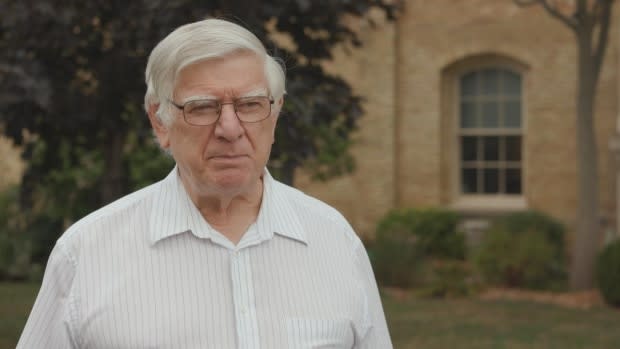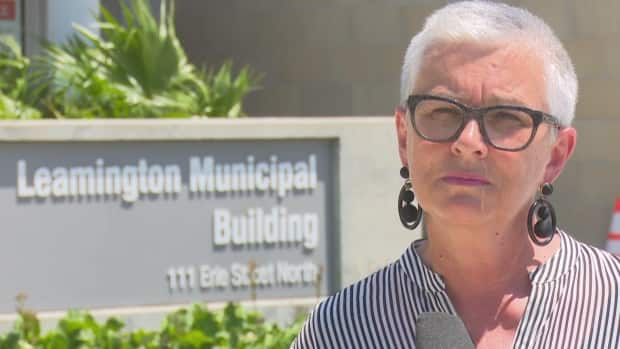Low German's experience public discrimination during COVID-19 surge
When the surge of COVID-19 cases among the Low German speaking population in Windsor-Essex was made public last month, the community was subjected to public discrimination, according to Leamington Mayor Hilda MacDonald and Low German Mennonite and nurse practitioner Helen Bergen. In addition to the negative comments made online, MacDonald said she was told of incidents within the community. She heard of people speaking aggressively to the older, more visible members of the population at grocery stores and of a case of a cancelled playdate with a Low German child.
"[They] said well little Mary won't be able to play with your daughter because you're Low German and we know that you have your potential to be a carrier of the virus," added MacDonald. MacDonald and Bergen said this ill treatment is not new to the community.
"They are good people and for this to happen to them bothers me deeply," MacDonald said.
"What I've seen on social media has been very disappointing. There's been some really unfortunate things said and a lot of painting of this one community with a single paint brush," said Bergen.
The Low Germany population is a diverse community in the thousands — some, but not all, are Mennonites, by ethnicity or by faith.
They're often larger families with deep roots in southwestern Ontario.
"They have a history of persecution," MacDonald said, adding that the migrant worker population was also subject to discrimination when outbreaks were declared in the farming community.
"I had hoped we had learned a lesson from that. Obviously, we didn't."

As the rest of Ontario re-opened this summer, Windsor-Essex remained a hotspot for COVID-19 as hundreds of migrant workers tested positive as outbreaks swept over farms — where Low German speaking family members also work.
"It was only going to be a matter of time before we were going to see numbers spilling over into the community and then to their close contacts as well. And that is exactly what we did see happen," Bergen said.
"I just think we are better off if we just don't single out any community."
Close-knit, self-sufficient
When Erie Shores HealthCare in Leamington noticed an increase in the population testing positive for COVID-19, outreach efforts increased, looking to connect in Low German.
Bergen describes the community as close-knit, self-sufficient and steeped in oral tradition, with some who may be hesitant to seek healthcare services.
"Traditionally, there has been maybe some level of distrust from government institutions," she said.
"There's a fair amount that .. only seek medical attention when they're ill and when they've exhausted their own resources at home."
Abe Harms, who is the executive director of Mennonite Community Services, said it's concerning to see the number of cases grow.
"Up until a couple of weeks ago, very few of us knew anybody that had it or had any experience with it ... and I think now everybody knows somebody that has had it," he said.

The organization's radio station has been deemed essential for getting information out to the community during the pandemic because it broadcasts in Low German, but Harms says it's been tricky getting the message across as the language — a dialect spoken in northern Germany and the Netherlands — has no word for face mask.
"There are certainly some words that are difficult to translate, so you have to do the concept," he said, adding that he has to explain to listeners what a face mask is and how it's used.
Bergen said reaching out to the community through different media outlets may not be as effective as engaging with them at a grass-roots level.
Ostracism led to some resistance
So, local leaders and mentors like Bergen asked pastors to preach public health messages during the pandemic.
"Traditionally, we know that [engaging their leaders] has worked well with this community and we thought it was definitely worth an effort to give that a try," she said.
But Bergen said the ostracism and finger-pointing led to an undesirable outcome.
"When they pull back and are maybe more resistive to testing than they would have been had this community not been singled out. That is unfortunate," she said.
"So I think [for] some of them, it is a pulling back, [for] some of them it is an anger response and you know 'let's boycott' and stuff like that."
MacDonald said she also spoke to the local health unit and other mayors, telling them that "naming anyone does not end well. It leads to bigotry. It leads to harassment" and that COVID-19 is "faceless."
"It can be spread by anyone. It doesn't matter the colour of the skin, their last name, the colour of their hair, the language they speak. We need to be aware that anyone can pass that virus on. And by naming one section of the population isn't good because discrimination toward them doesn't help."
Through community outreach and contact tracing, the number of cases has gone down, according to Bergen, suggesting the community is responding to safety measures.
"We have reacted appropriately where the outbreaks were," she said. "I do believe we have stabilized those numbers now and I think going forward it probably feels more real to more people now than it did in the past." Bergen said the Low German COVID-19 curve is in decline and reminds everyone that the virus itself does not discriminate.


